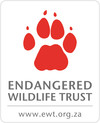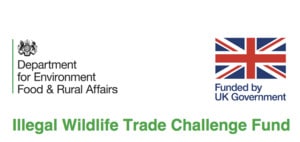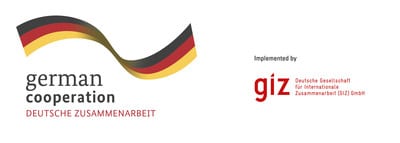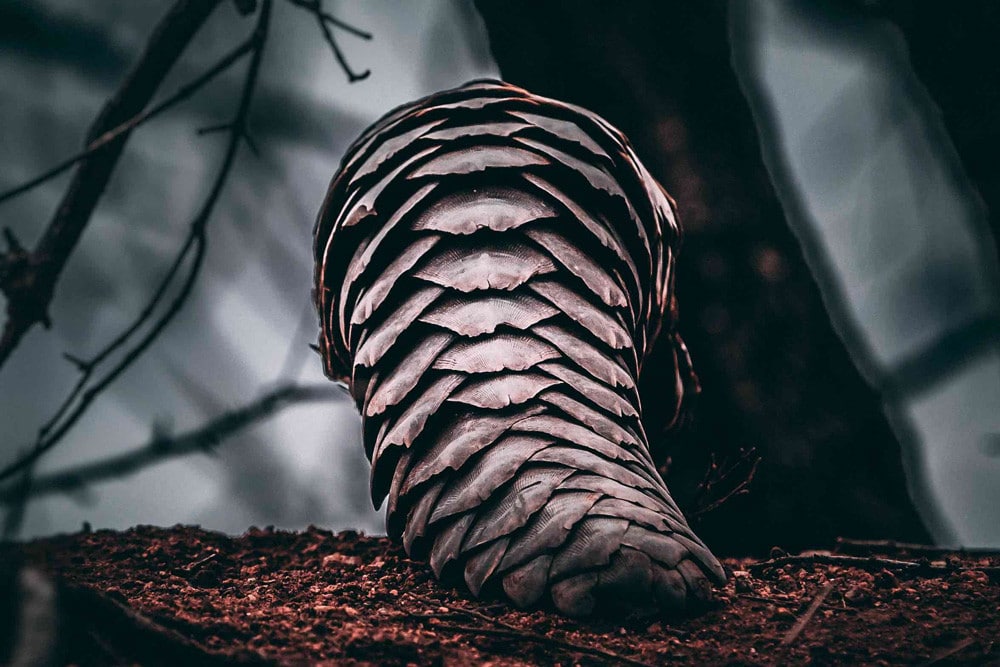World Pangolin Day
Today is World Pangolin Day – an opportunity for APOPO and the Endangered Wildlife Trust (EWT) to join other organisations in raising awareness about the plight of these shy, unique mammals. Although APOPO is best known for training rats to detect landmines and tuberculosis, APOPO is training a separate group of furry friends to protect this unique mammal, now the most trafficked animal globally, from going extinct.
The conservation of wildlife is closely related to the UN Sustainable Development Goals #15: Protect, restore and promote sustainable use of terrestrial ecosystems, sustainably manage forests, combat desertification, and halt and reverse land degradation and halt biodiversity loss.

Pangolin scales are made of keratin, the same material in fingernails, hair, and horns. Pangolin scales, like rhino horn, have no proven medicinal value, yet they are used in traditional Asian and African medicine. For many years, the Asian species were the primary target of poachers and traffickers for both their scales, and meat regarded as a delicacy to consume in Asia. But now that their numbers have dwindled, smugglers have increasingly turned to African pangolin species. This illegal wildlife trade threatens these iconic African species and robs communities of their natural heritage.
APOPO’s HeroRATs have been saving human lives for more than two decades, but now their noses have turned to save the lives of fellow animals. In partnership with the EWT, APOPO has established proof-of-principle in a controlled laboratory environment that our rats can reliably sniff out the scent of commonly trafficked wildlife, including pangolin scales. With project support from the Wildlife Conservation Network’s Pangolin Crisis Fund and the UNDP-GEF-USAID Reducing Maritime Trafficking of Wildlife between Africa and Asia project under the World Bank-led Global Wildlife Program, we are now developing ways for the rats to put their specialised skill to use by screening shipping containers for any pangolin scales.
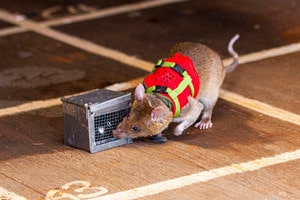
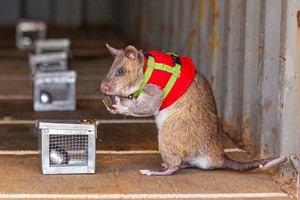
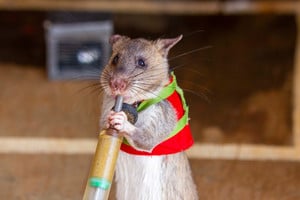
HeroRAT Kate searches inside a shipping container for wildlife targets hidden within simplified parcels used for training. She pulls a small ball on her harness to let her handler know when she’s found one. She receives a tasty treat for correctly finding and indicating the wildlife item!
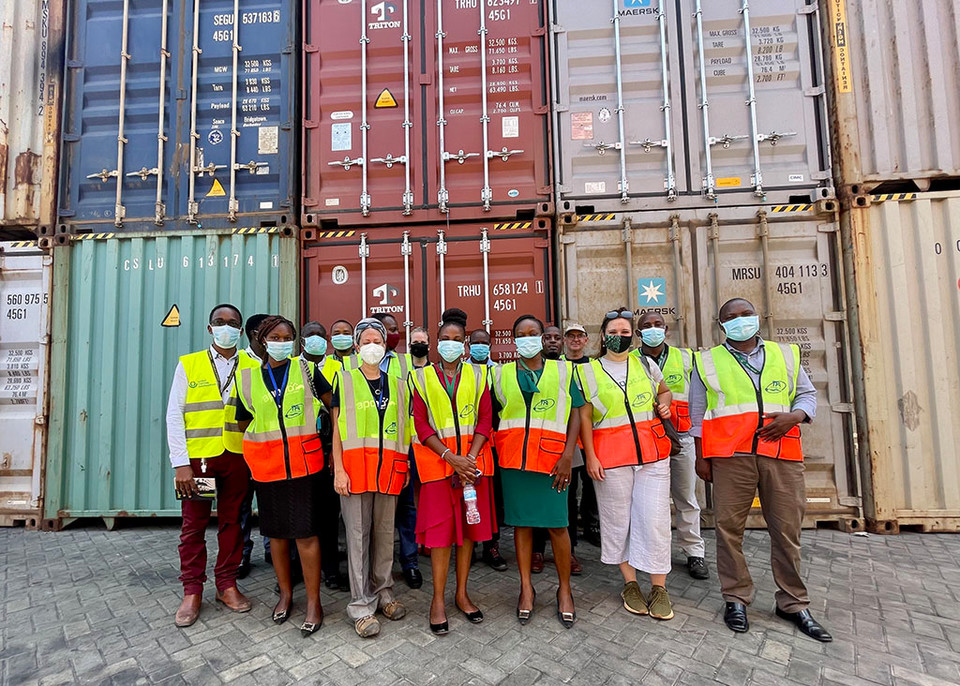
A recent Wildlife Detection Workshop with the EWT, APOPO, and Tanzanian Port and Wildlife Authorities provided critical insight into where and how the rats might be able to do this important work within a port environment. All the discussions held and information gathered will inform the next stage of training for our rats, and the important networks established will help secure a place to test this training later this year.
Pangolin photo © Geran de Klerk
APOPO is grateful to its partners and donors who are instrumental to the success of our anti-wildlife trafficking project.
